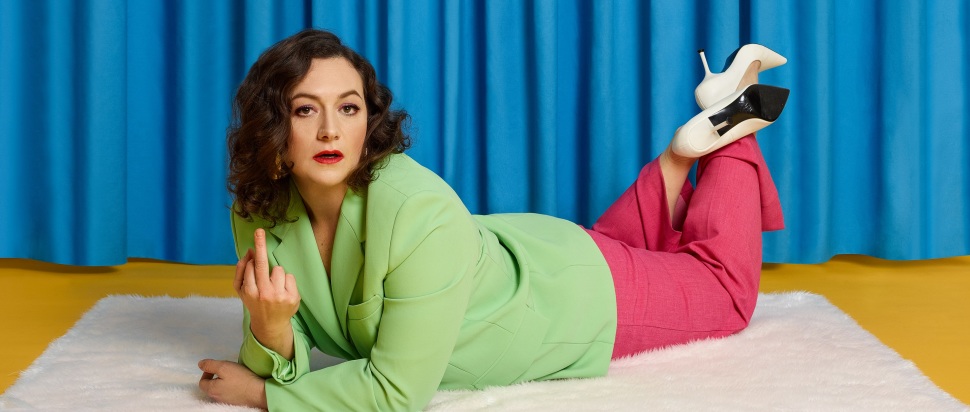Nuance and Pubes: A chat with Jessica Fostekew
Jessica Fostekew chats nuance, tackling complex issues in comedy and changing people's opinions
In a time where the pressure to articulate clear positions on hot button topics is particularly intense, Jessica Fostekew’s willingness to address ambivalence is refreshing. Committed to broaching the hard stuff in her new show – sensitive, complex topics like gender, sexuality, ageing – she’s also honest about not always knowing what she thinks or not liking what she finds herself believing. She acknowledges it can be tricky communicating this kind of nuance comically, given the pressure comedians feel to “come at subjects as someone who knows everything,” while ensuring content “makes sense and hits hard and gets clicks.” Fostekew, however, is adamant that all the different “shades and angles” are attended to. Don’t imagine that this equates to earnestness, though, because if there’s one thing there can be no doubt about, “it must be funny.”
Starting as a “very tight and fast” piece at this year’s Fringe, Fostekew’s latest hour Wench evolved over the course of the festival into something looser. She reaches for the image of a ball of wool to illustrate what she’s after; it’s still got a clear shape but it’s “malleable”. Now on tour, the comic’s enjoying how different the show is each time, with each new audience and venue bringing a distinctive energy. It’s not so much that the words change, but the emphasis shifts: “where you lean into, lean back from, bits you throw away, bits you speed up, bits you slow down.”
Fostekew is relishing the conversations emerging in response to her material; as keen to engage with those who don’t agree with her, as those that do. And she freely admits to being on a journey with some of the issues raised: plastic surgery for instance, a big theme of the show, remains something she’s confused about. Pubic hair – that’s another issue: “What kind of pubes are we doing?” she asks the audience, and her perplexity about where we’re at with waxing trends leads to some deliriously funny riffs.
At moments, she’s clearly angry about the way expectations are shifting – with the normalising of Botox for instance – to the degree that “poison in your face” becomes “an inevitable part” of any young girl’s future. But she’s also keenly aware that her perspective is bound up in cis-gendered, middle-class ethics and assumptions (artificiality is bad; spending lots of money on your appearance: also bad). For those on a “gender journey” or for those with different aesthetic tastes, then surgery represents something much more positive. It’s important, too, she says, not to pathologise this particular historical moment, given that we’ve been doing “mad shit for centuries.” It's just another step in the constant “stretching of the bonds of what we do for beauty.”
Our capacity for change, particularly the potential for small-scale shifts, is something she believes we don’t emphasise enough. She mentions a recent conversation with a boomer relative, who talked with baffled contempt about the number of non-binary kids at a local secondary school – dismissing it as just a fad or a phase. Fostekew gently took issue with this, suggesting the situation could be approached “with curiosity and not judgement.” Her reframing worked, allowing for a shift in the relative’s viewpoint. While Fostekew is in no doubt that the attitude revealed was essentially “toxic”, she’s again aware of the limits of her own perspective, and her own particular bubble, recognising that the bafflement is an attitude shared by many. It's another instance where she experiences herself as part of what she calls a “bridge generation”; a liminal position that she uses to great effect in the new show.
That recalibration from judgement to curiosity says a lot about the kind of intellectual and emotional precision Fostekew brings to her comedy. She clearly thinks hard about how emotion fuels our opinions, and recognises that precision about those emotions can be crucial in affecting change. She understands, equally, that emotion is an essential motor for her storytelling, and one she uses very strategically in her examination of tricky topics. It’s a deeply considered approach certainly, impassioned and punchy too, but above all, unfailingly funny.
Jessica Fostekew: Wench, The Stand Glasgow, 7 Nov, and The Stand Edinburgh, 9 Nov, 8.30pm, £12-14
Find Jessica on Twitter and Instagram @jessicafostekew, and listen to her Hoovering Podcast wherever you get your podcasts
http://jessicafostekew.com/
